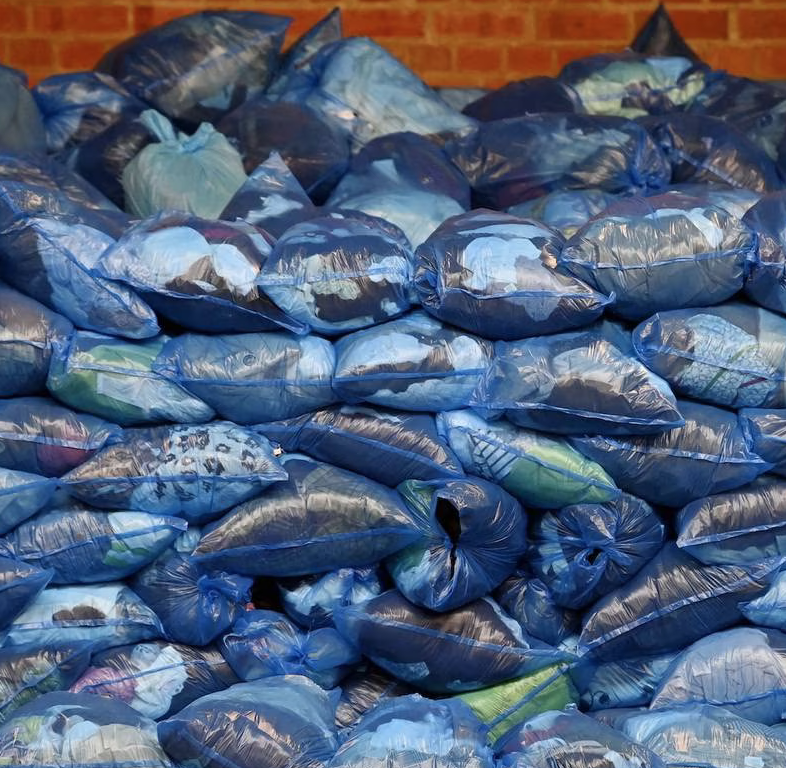
At the start of this year, things looked fairly bleak for fashion’s textile-to-textile recycling industry.
Though practically everyone in the nascent space agreed more investment was needed to develop the infrastructure and technologies required to turn old clothes back into usable materials at scale — advances the industry is relying upon to meet existing sustainability commitments and comply with incoming regulation — in a slowing market, no one seemed willing to stump up the cash.
The downturn resulted in some high-profile failures. Pioneering Swedish textile-to-textile recycler Renewcell declared bankruptcy in February as weaker-than-expected sales pushed it into a cash crunch and revealed deeper, structural challenges. Contagion made it even harder for other start-ups to secure new funds.
But the crisis appears to have galvanised the industry to action. In its wake, more brands have inked purchasing agreements with start-ups, promising to buy hefty volumes of recycled textiles once plants currently under construction hit commercial scale. These commitments have, in turn, helped unlock more funding, de-risking investments by guaranteeing material innovations a future market. New, deep-pocketed players have stepped into the space and manufacturers, a crucial link to get new materials from production to product, are becoming more active.
Renewcell was acquired out of administration on Tuesday by private equity firm Altor Equity Partners. The business will operate going forward under the name Circulose. Syre, a new polyester-recycling venture launched by H&M Group and green-industry investor Vargas shortly after Renewcell went under, has raised $160 million in the last few months, underpinned by a $600 million offtake agreement with H&M.
On Wednesday, Sri Lankan manufacturing giant MAS pledged to buy thousands of metres of recycled polyester from LA-based start-up Ambercycle over a three-year period, a rare example of a supplier entering into such a deal. And last month, Sanko, the owner of Turkish denim producer Isko, launched Re&Up, its own recycling venture.
“We’re a lot smarter, a lot wiser,” said Nicole Rycroft, founder and executive director of environmental nonprofit Canopy, which works with industry to support the introduction of new materials. “There’s a different level of maturation across the whole value chain.”
Lessons Learned
The industry is trying its best not to let a good crisis go to waste, with players across the space adjusting their strategies to focus more on locking in demand commitments and securing a clear path for new materials through fashion’s complicated supply chains.
The newly rebranded Circulose, for one, is planning on pursuing a fresh strategy in this direction. Its mill will stay in “hibernation mode” at least until the end of the year while the company focuses on drumming up a secure demand base for its production.
“It’s totally different than before when all the focus was to get the mill running, but the market didn’t develop at the same pace and we had the mill consuming a huge amount of resources,” said Magnus Lundmark, the former chief operating officer at Renewcell and newly appointed chief executive at Circulose. Canopy has been working with brands to try and simplify the new material’s path to market by getting brands and fibre producers to agree to initially all source the same kind of fabric blend.
Meanwhile, Ambercyle said its agreement with MAS is an important unlock to help secure the financing it needs to get construction going on a commercial plant it plans to have operational by the end of next year. The company already has a €70 million ($76 million) purchase commitment from Zara-owner Inditex, but demonstrating buy-in from the supply chain adds credibility that the material will have a path to market once output starts to ramp up, said CEO and co-founder Shay Sethi.
Still much more money will be needed to level up the industry’s recycling ambitions; some $400 billion according to estimates from Fashion for Good and private equity firm Spring Lane Capital. Whether that money is forthcoming will depend on how fashion’s emerging recycling sector performs in its second act.
Renewcell’s rescue was “a little bit of a Hail Mary pass,” said Rycroft. “This second chance must not be wasted.”
Read more – BOF
